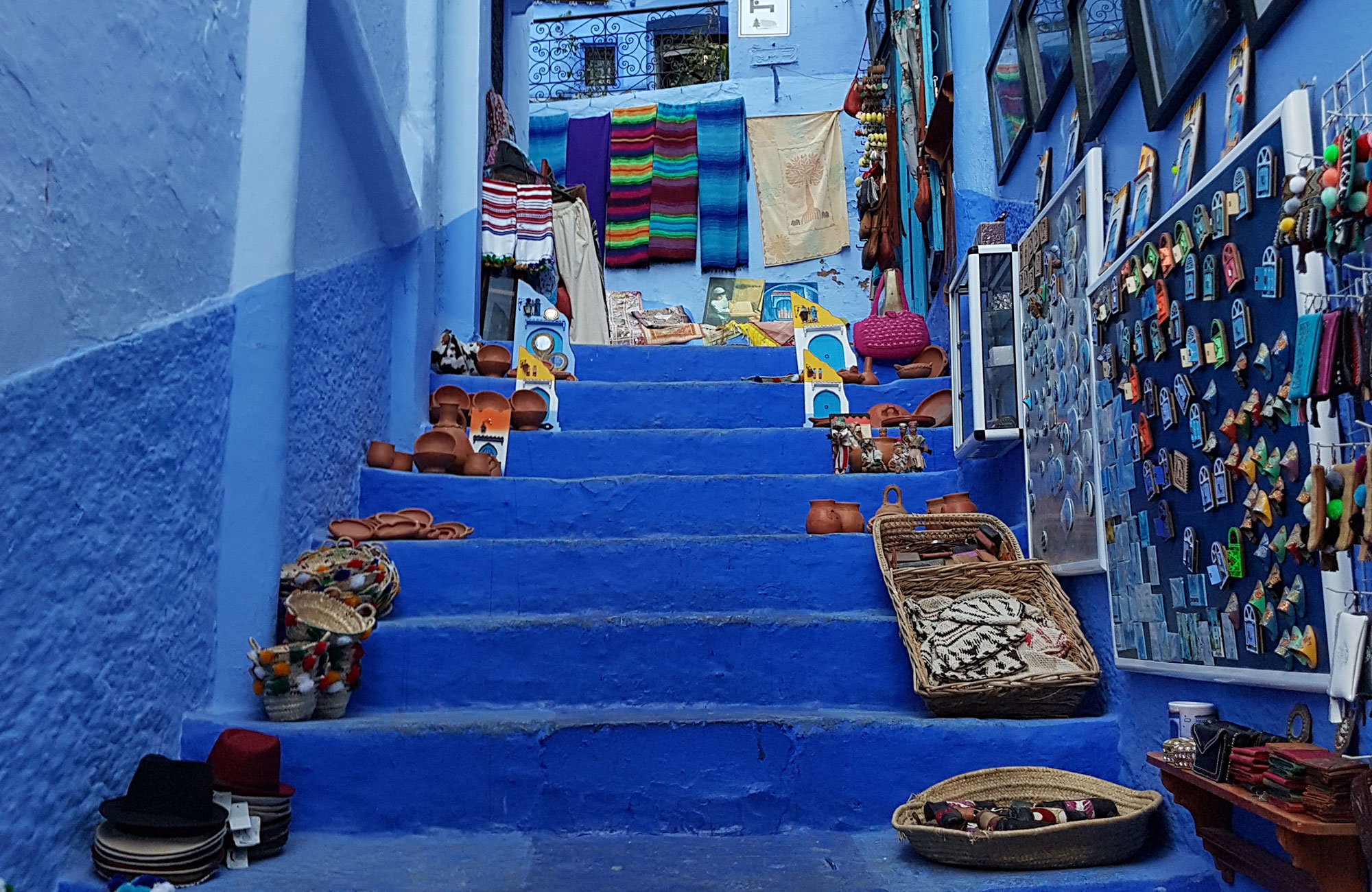Time your perfect trip to Morocco
The best time to travel to Morocco depends on what you want to experience. Generally, March to May and September to November offer the best weather. Spring blooms and mild temperatures make outdoor activities enjoyable in March and April. In autumn, comfortable temperatures and fewer tourists make exploring cities and deserts ideal. This guide details what to expect each month in Morocco.

Sure, the buzzing markets, handcrafted pottery, and chaotic charm of the medinas are all part of the Morocco you’ve heard about. But there’s another side too. Think sandboarding down the dunes near Agadir, quad biking into the endless horizon of the Sahara, or catching waves in laid-back Essaouira.
If you're into wild adventures, cultural deep-dives, or just soaking up the sun somewhere totally different – Morocco’s got you covered. Curious what you could get up to?
Seasonal Travel Guide to Morocco
Morocco is a year-round destination with something to offer every month. Knowing the climate and weather patterns helps maximize your trip. This guide caters to budget travelers seeking off-peak seasons and adventurers looking for the best conditions for all kinds of activities.
January to March: Budget-Friendly Adventures and Pleasant Temperatures
January and February both are an excellent time for travelers who prefer fewer crowds and a more authentic experience. Despite being the coldest month, the daytime temperatures in coastal cities range from 10°C to 18°C. The cooler temperatures and smaller number of tourists make it perfect for exploring busy cities like Marrakech and Fes without the intense heat of summer. Be ready for surprisingly cold nights, especially in mountain regions, and pack warm layers for colder weather to stay comfortable. If you plan and pack right, Morocco could be the perfect winter destination.
In March, spring arrives with mild but warmer weather and blooming landscapes creating a pretty backdrop for your trip. This month offers great conditions for outdoor activities, from hiking in the Atlas Mountains to exploring ancient cities. A highlight is the annual almond blossom festival, celebrating the harvest season and showcasing the region’s natural beauty.
April and May: Perfect Weather for Exploration
April is considered one of the best times to visit Morocco, thanks to its warm and pleasant weather, making it perfect for sightseeing and outdoor activities. April provides an enriching environment for wandering through historical sites or enjoying cultural tours, perfect for experiencing Morocco’s heritage.
In May, Morocco is in full bloom, with warm temperatures and colourful landscapes creating an inviting atmosphere for visitors. It’s an ideal month for exploring Morocco’s natural beauty and cultural heritage, from the imperial cities to the annual almond blossom festival.
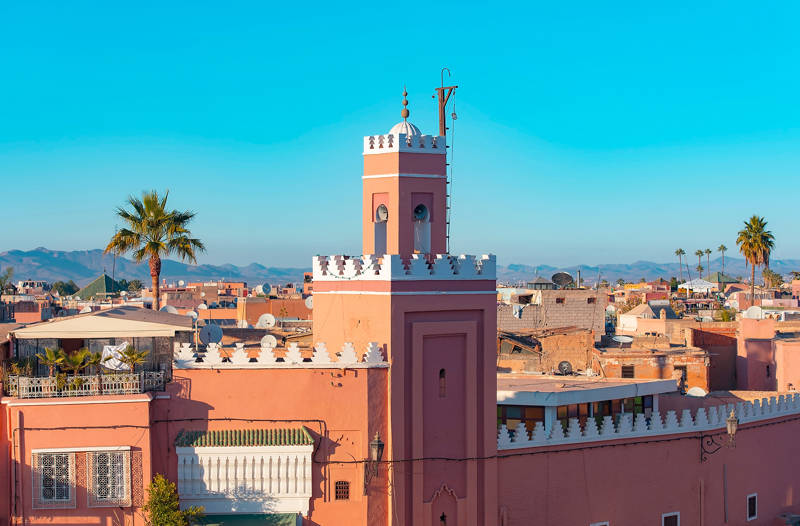
June to August: Beach Vacations and Coastal Activities
June marks the beginning of summer, when the weather just calls for beach vacations along the Atlantic coast. Coastal cities like Agadir and Essaouira become popular destinations, offering a refreshing escape from the inland heat. The Moroccan coast is perfect for both sunbathing to water sports like surfing, making for a memorable summer getaway.
July is synonymous with high temperatures, and not everything will be open. For example, most desert camps close from June to August July due to the intense heat, but the Sahara still offers unique opportunities for camel trekking and exploring the serene beauty of the dunes.
August is much of the same, with cool Mediterranean ocean contrasting pleasantly with the intense inland heat. Coastal cities like Agadir and Essaouira are especially popular during peak season, since they're the favourite places for both international and domestic tourists to escape the heat.
September and October: Shoulder Season Exploration
In September the shoulder season kicks off, still offering warm weather but less and less travellers. It’s great for exploring Morocco’s attractions and taking part in outdoor activities and tours without the peak season crowds.
October’s moderate temperatures and changing scenery make it one of the best months for travelling in Morocco. The comfortable weather is perfect for exploring and cultural experiences, from visiting historic sites to enjoying the lively atmosphere of Moroccan cities and festivals.
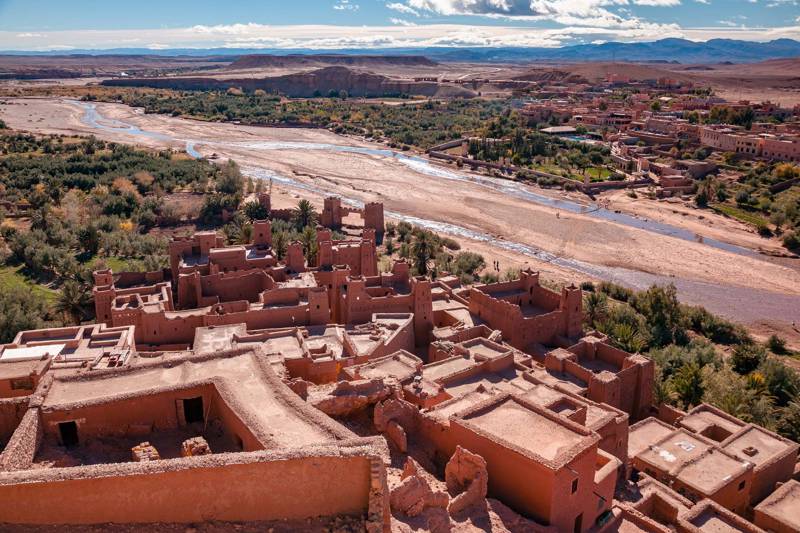
November and December: Outdoor Adventures and Mild Weather
November is still a great time to go, while winter kicks in for the northern European countries, Moroccan temperatures can still be comfortably above 20°C if you're lucky. Great for hiking and exploring Morocco’s varied landscapes, we'd say! The mild climate is perfect for outdoor activities, especially in the mountains where travelers can enjoy stunning views and scenic trails without extreme heat challenging you.
As we close off the year, December offers mild but comfortable weather, perfect for cultural experiences and urban exploration. It’s the best time for cultural tours, allowing travelers to immerse themselves in Morocco’s diverse culture.
Regional Climate Differences
The northern and coastal areas of Morocco enjoy a Mediterranean climate, characterized by moderate temperatures and distinct wet seasons. Coastal cities like Rabat and Essaouira benefit from refreshing ocean breezes, providing comfortable conditions year-round.
In contrast, the inland and desert regions experience more extreme temperatures, with the Sahara Desert being particularly hot during the summer months and excessive heat. Keeping these regional differences in mind helps you make the most of activities and pack appropriately in vast deserts.
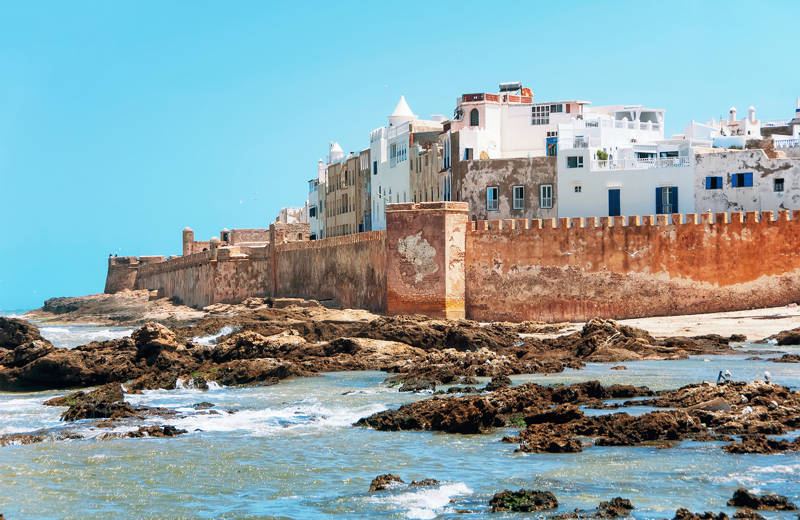
Best Times for Specific Activities
Morocco offers various activities year-round, from hiking in the Atlas Mountains to camel trekking in the Sahara Desert. Here are the ideal months for specific activities, to help you make the most of your Moroccan adventure.
Hiking and Trekking in the Atlas Mountains
The Atlas Mountains offer breathtaking landscapes and diverse terrains, making them a hiker’s paradise. The best months for hiking and trekking in the high atlas mountains are April, May, and September through November. These months offer pleasant temperatures and fewer crowds, ensuring a comfortable and enjoyable hiking experience. Pack warm layers, a rain jacket, and comfortable shoes to navigate the varied terrain. Stay hydrated and take it easy in the first few days to acclimate to the high altitude.
Beach Activities on the Moroccan Coast
The Moroccan coast offers great beach activities from May to September, with June, July, and August being the prime summer months. Coastal cities like Rabat, Essaouira, and Agadir enjoy refreshing ocean breezes, perfect for sunbathing and water sports. Summer temperatures hovering on the Atlantic coast typically hover around 27°C, perfect for a relaxing beach vacation.
Visiting Imperial Cities
Morocco’s imperial cities, such as Fes, Marrakech, and Casablanca, are rich in history and culture. The best months to visit these cities for pleasant weather are March to May and September to November. February also offers manageable weather, fewer crowds, and cost-effectiveness, making it an excellent time to explore Morocco’s cultural treasures. Key cultural events, such as the Fes Festival of Cultural Capital World Sacred Music, further enrich the experience of visiting these historic sites in the ancient city with its rich history.
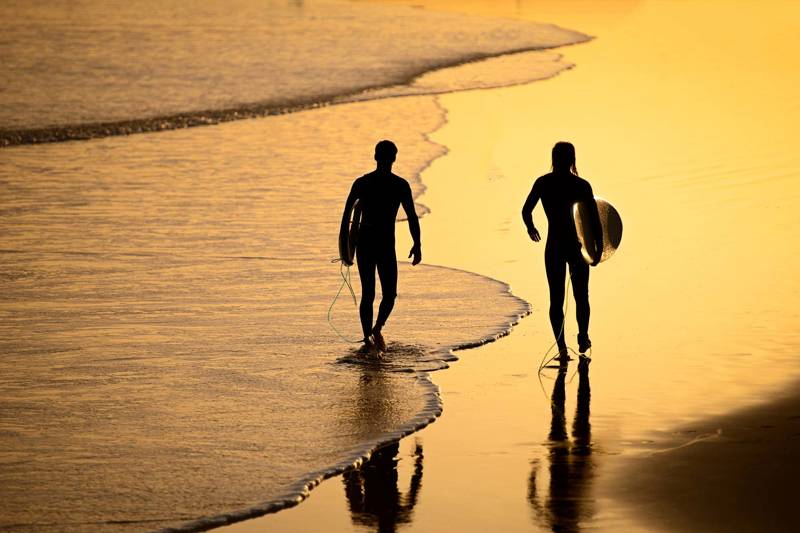
Festivals and Cultural Events
Morocco’s festivals and cultural events provide unique insights into the country’s rich culture and traditions. Here are some of the most notable festivals and cultural events in Moroccan cities, offering trip ideas for those seeking to immerse themselves in Moroccan culture.
Ramadan and Eid Celebrations
Ramadan is a significant time in Islamic culture, marked by a month of fasting, spiritual reflection, and communal prayers. Local businesses often close during the day, but evenings come alive with celebrations featuring musicians and dancers, particularly in Jemaa el Fna square. Eid al-Fitr, marking the end of Ramadan, is celebrated with lavish communal feasts and family gatherings, showcasing Morocco’s rich cultural traditions.
Annual Almond Blossom Festival
The Annual Almond Blossom Festival in Tafraoute celebrates the blooming of almond trees, marking the onset of spring. The festival showcases Amazigh culture with vibrant activities, traditional music, and local crafts, enriching the region’s cultural landscape. Visitors can enjoy a lively atmosphere filled with amazing nature and the warmth of Moroccan hospitality, complemented by delicious food.
World Sacred Music Festival
The Fes Festival of World Sacred Music, held annually in June, brings together diverse musical traditions from around the world. The Sufi festival features performances focusing on spiritual and sacred music, offering a unique cultural experience for attendees.
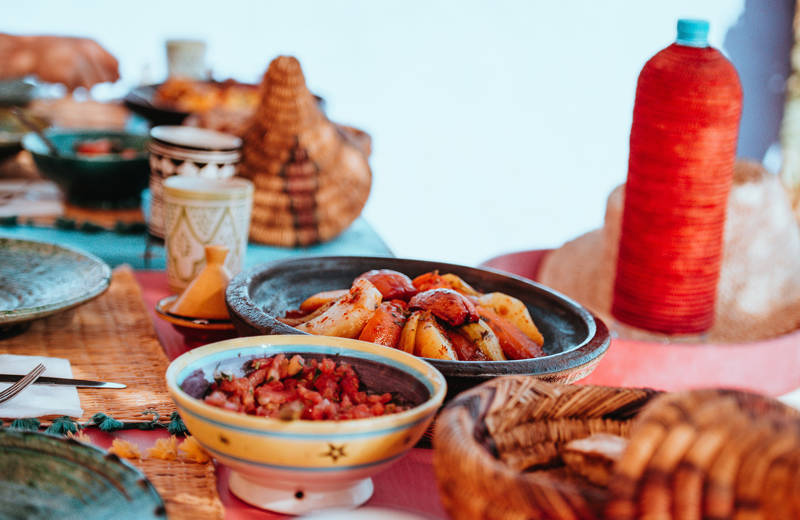
So in short...
Morocco is a year-round destination with something to offer every traveller. From the cooler temperatures of January to the warm coastal escapes of August and from hiking in the Atlas Mountains to adventures in the Sahara Desert, Morocco is a great destination year-round. If you're ready to experience the magic of Morocco, get in touch with our travel agents and make that trip happen!
Start planning your own Morocco adventure
Frequently Asked Questions
What is the best time to visit Morocco?
The ideal times to explore Morocco are in spring, from mid-March to May, and fall, in September to October, when the weather is milder and the crowds are smaller. You'll really enjoy the experience during these seasons!
What should I pack for a trip to Morocco?
You should definitely pack lightweight, breathable clothes for the warm days, but don't forget some layers for cooler nights. It's best to choose loose-fitting attire that covers your arms and legs, plus a scarf for visiting mosques.
Are there any cultural festivals in Morocco?
Absolutely! Morocco is vibrant with cultural festivals like the Fes Festival of World Sacred Music, the Annual Almond Blossom Festival, and the lively celebrations of Ramadan and Eid.
How is the weather in Morocco in Winter?
From December to February, Morocco experiences cooler temperatures, generally between 10°C and 18°C in coastal areas, making it a great time for exploring the cities without the crowds. So, pack your layers and enjoy the adventure!

